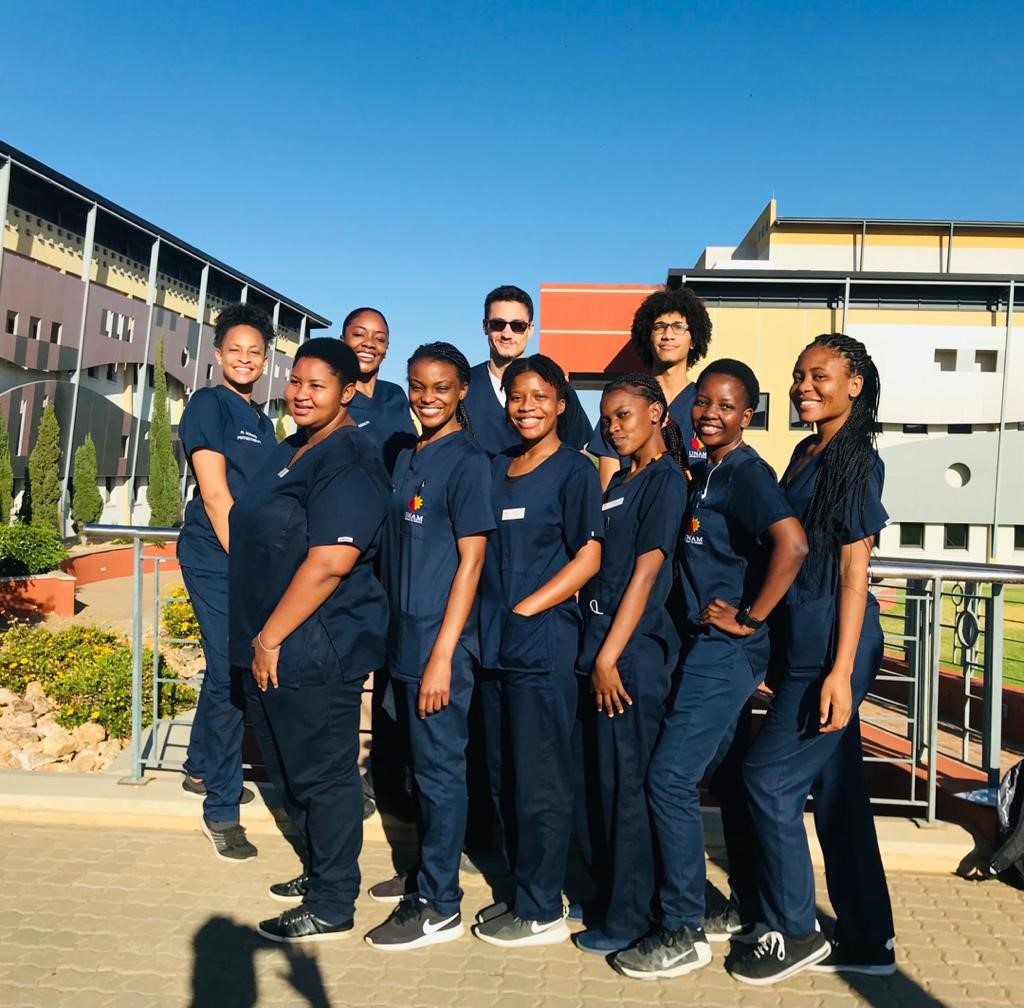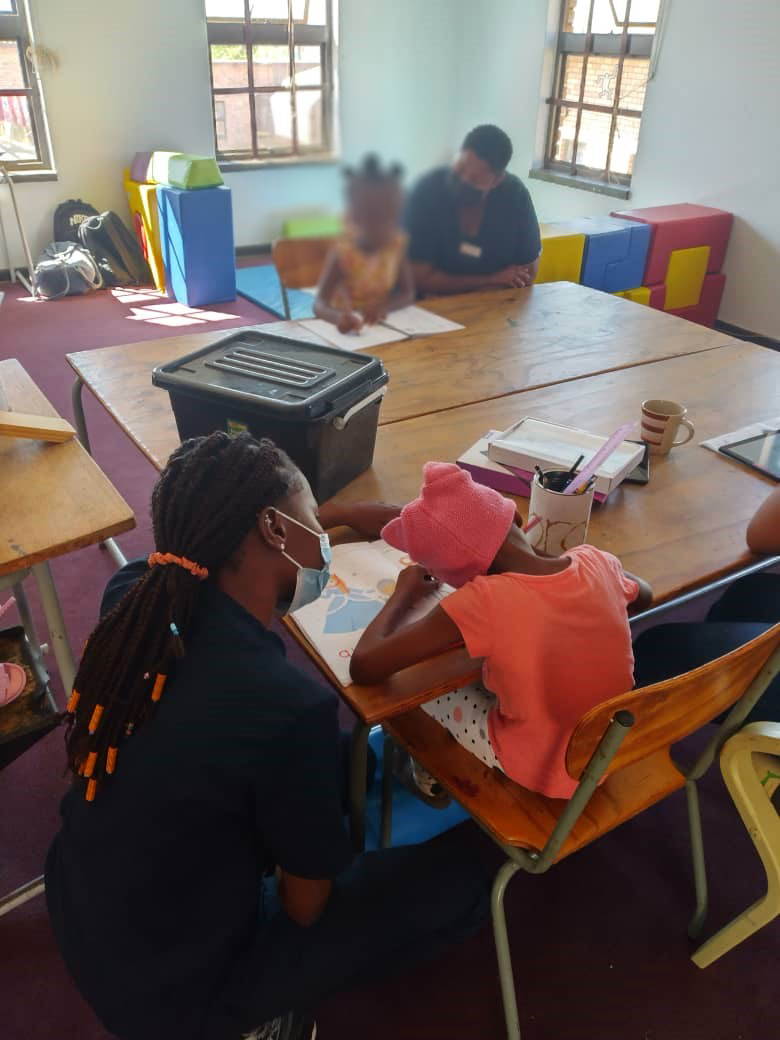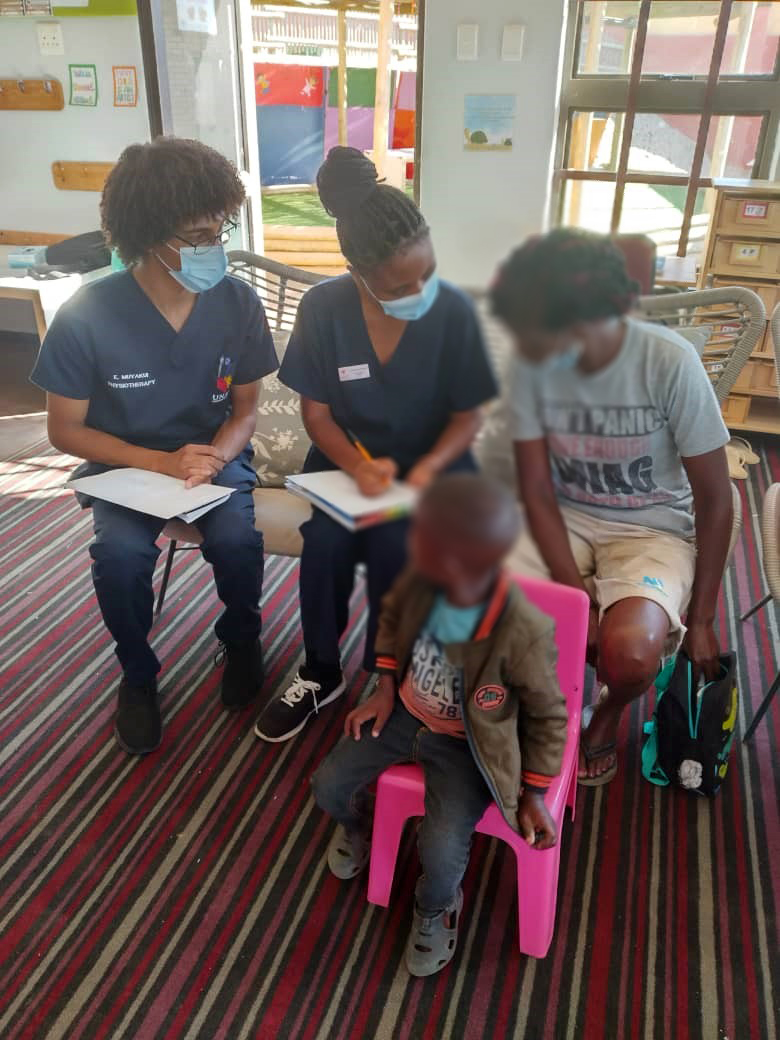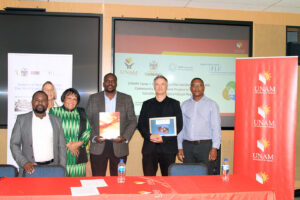– MVA makes it possible for UNAM to graduate first locally trained physiotherapists –
Relatively speaking, Physiotherapy is one of the youngest programmes at the University of Namibia (UNAM). The programme is envisioned to make an impactful difference in the health sector, with its first cohort of physiotherapists set to graduate in April 2022.
The Bachelor’s degree in Physiotherapy was introduced in 2018, following a difficult period of over 10 years with less than 3 physiotherapists in the public health sector.
This challenge prompted the University to heed the demand for home-grown physiotherapists in order to address the national shortage. With the generous support of N$4.5 million to date by the Motor Vehicle Accident Fund (MVA), the programme has since enrolled 54 passionate students, who have been equipped to champion the field of physiotherapy in Namibia.
Groomed for the future
Reflecting on their journey over the past four years, the cohort of ten unanimously remarked that they are excited and prepared to take on their future work as physiotherapists.

The class of 2021 has since the commencement of their course-work focused on understanding the science behind physiotherapy as well as medicine. This was paired with clinical training that began in their second year. This training required the future physiotherapist to complete a total of 1000 hours of clinical work. During these hours, the students were supervised by UNAM lecturers.
“Since the beginning of our clinical hours, in the Katutura State and Windhoek Central hospitals, we have consulted around 40 patients per day. Although this was overwhelming in the beginning, it has since developed our confidence as physiotherapists”, stated Naomie Asino, a 4th-year student.
Patience Lyakuwa, another student that is to graduate, highlighted that the most testing time of their training was assisting recovering COVID-19 patients.
“We struggled the most with patients that came from the ICU”, said Lyakuwa. He further elaborated that: “These patients suffered from lung damage and struggled to take deep breaths post-Covid-19. Such diagnosis, demanded us to be physically and emotionally available for the patients in order to get them back to their previous level of function”, added Lyakuwa.

Another student, Anna Kapolo, recalls that besides assisting recovering Covid-19 patients they also visited community care centres. “Our clinical hours have afforded us with many opportunities to see the impact of physiotherapy and render our services to those that need it most. Both our experience in community care homes and the hospitals have groomed and prepared us competently”, remarked Kapolo.
“All in all, we are extremely excited to graduate and continue making a difference in our public health sector and the community”, remarked Ez-Jay Isaacs on behalf of all the grandaunts.
Handing over the baton
Martha Kapiya, a registered physiotherapist, has been working at the Katutura State Hospital for the past 20 years. For five consecutive years, Kapiya worked as the only physiotherapist in the hospital, with seasonal assistance from volunteering physiotherapists.
“Truly, it is a relief to have these students join the profession because working alone – catering to both outpatients and those in the wards – isn’t an easy task”, remarked Kapiya. Kapiya’s work involves treating an average of 40 outpatients a day and working in each ward aiding injured and physically vulnerable patients.
She added that: “The state hospital not only caters to the physiotherapy needs of patients in the Khomas Region, but at times patients from other regions are referred to Katutura Hospital for treatment due to the lack of physiotherapists in other regions.”
Despite this challenge, Ndapandula Londo Chief Physiotherapist at the Windhoek Central Hospital remarked that there is hope with this cohort of students. “I am super excited to officially welcome this group to the profession because looking back on the history of it in Namibia, physiotherapy is still a scarce profession in Namibia”.

“Not long ago, we were about seven physiotherapists in the entire public service. At the moment we are 21 as the ministry recently managed to employ therapists in different regional and district hospitals”.
“The future looks great, and I am certain of this because they have been well trained. These students have been coming for their clinical practice from the second year and they bring to this profession a rare enthusiasm and understanding which assures me that the future is in good hands”, remarked Londo.
Physiotherapy as a profession
Physiotherapy, which is commonly mistaken for massage therapy involves more than just the manipulation of body tissues. This profession includes a range of modalities to help patients recover from injuries where movement and function have been impaired.
The Bachelor’s degree in Physiotherapy introduces students to numerous facets of this profession. During the four years, students are taught human anatomy, physiology, and pathology before delving into physiotherapy management. Physiotherapy management delves into clients of all ages, from neonates to geriatric clients, presenting with cardiorespiratory, cardiovascular, musculoskeletal, and neurological conditions, among others.





